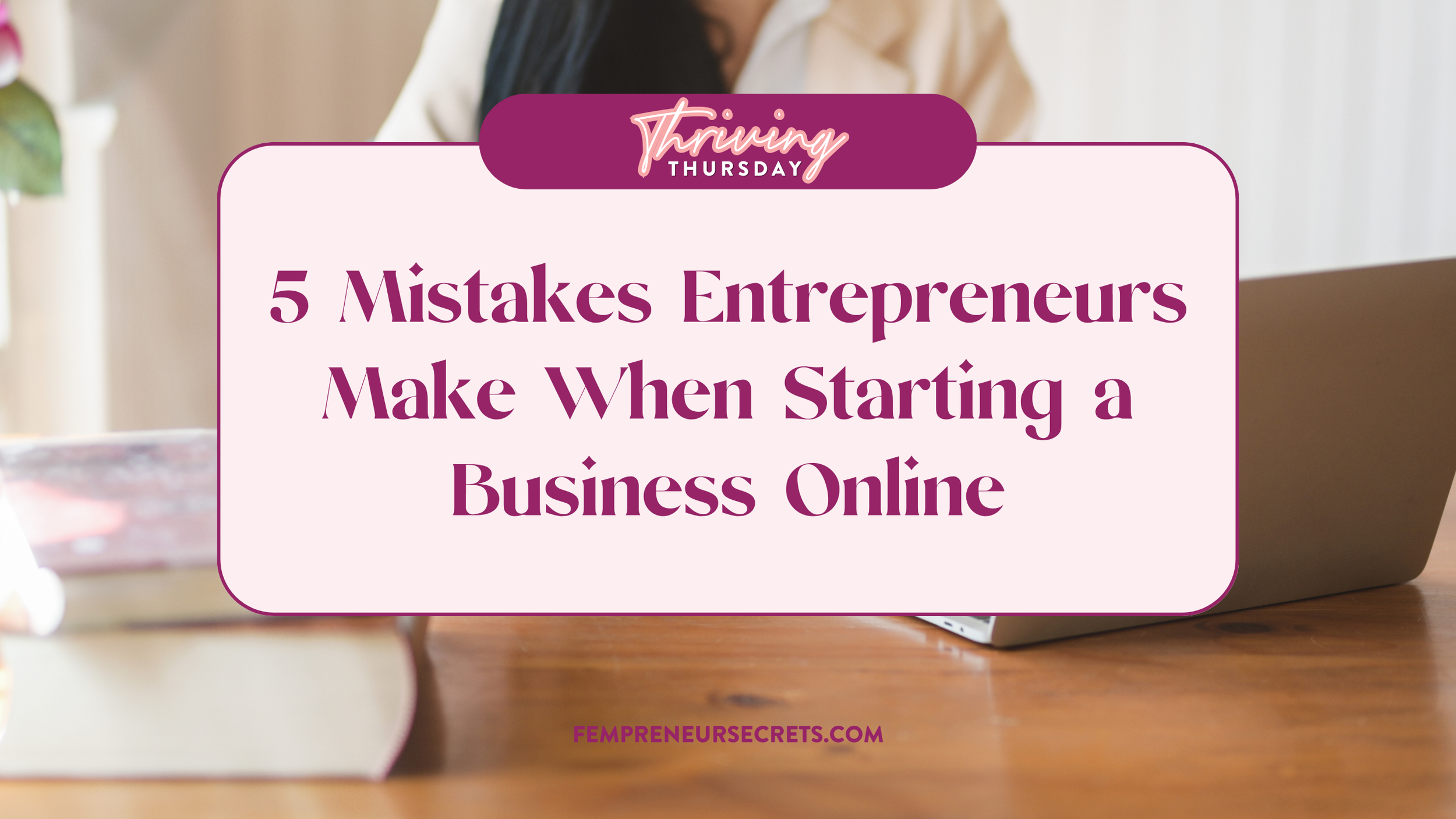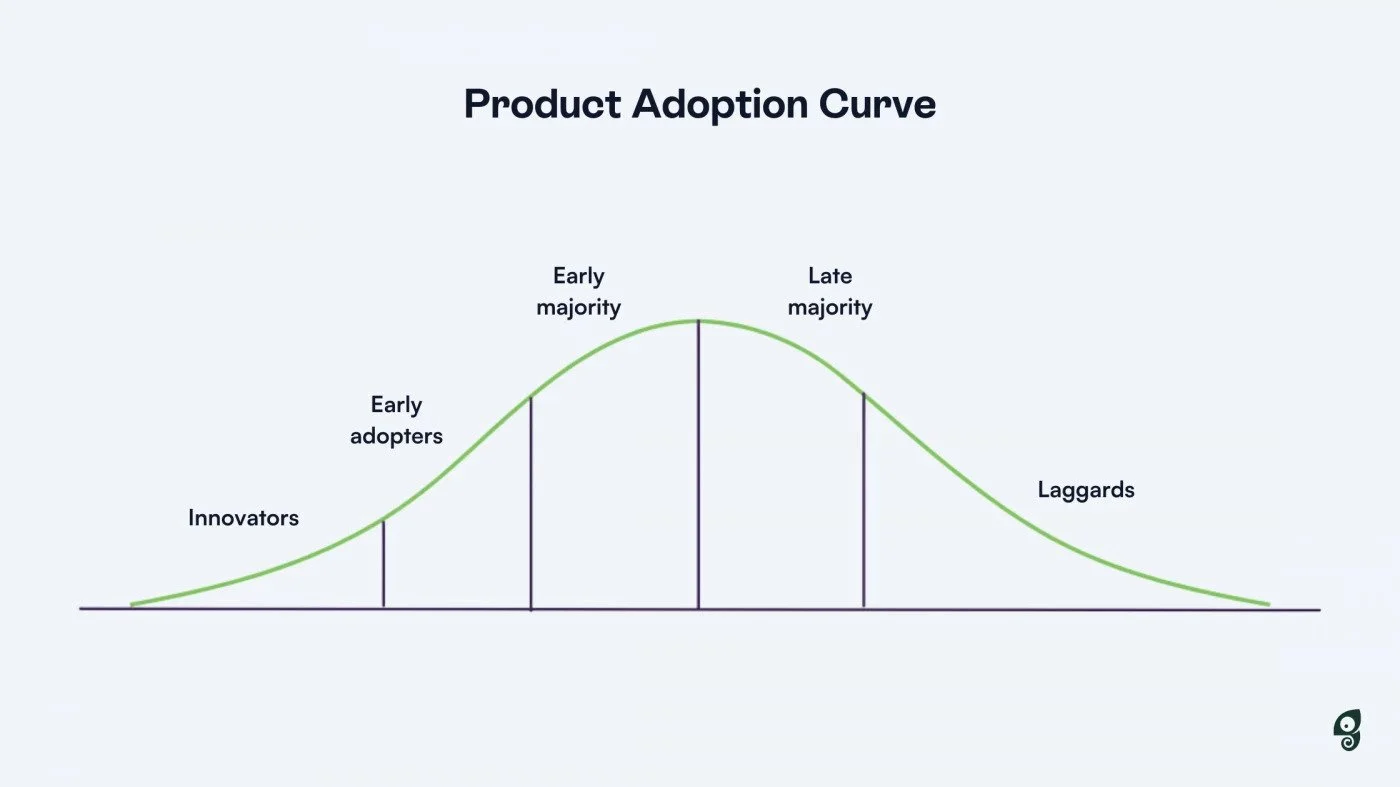5 Mistakes Entrepreneurs Make When Starting a Business Online
I recently introduced a new weekly series called Thriving Thursdays with Huda Hamid. Here, I go live on Instagram on Thursdays, 6PM GMT+08, to discuss a topic to overcome challenges relating to taking that first plunge into the world of entrepreneurship.
In this episode, we’ll be focusing on:
5 Mistakes Entrepreneurs Make When Starting a Business Online
You’re here because you may have had the experience of running a business based on someone else’s ideas, but it didn’t pan out too well.
When a trend comes along, you want to be the first to jump on that to make a quick buck.
What were some of those trends you saw just too many people selling online?
Remember the fidget spinners trend, or just a few months back the Lato-Lato craze? Did you try to bring in the products, try to sell it, only to have stocks still stuck at home?
If this sounds like you, you must stay all the way until the end of today’s session. I’m going to share a lot of wisdom on this.
Watch the full replay below
Mistake 1: Jumping onto Product/Business Trends
The first mistake entrepreneurs make when starting a business online is jumping onto trends without research. The keyword here is without research.
So, here’s the thing about trends. Trends are created by a market leader. There’s often a strategy associated with this that creates the trend, a trend. Trends also require a deep understanding of market forces and business cycles. You need to know when the trend is emerging, before the trend becomes popular.
Have you seen this chart before?
Source: chameleon.io
Trends usually exist between the Early Adopters and Early Majority phase. Innovators would have already tested the products while Early Adopters have already reviewed and tested the products. Early Majority started getting into the game - AND This is actually the stage where a lot of people start to realise there’s a business opportunity here because it’s what the “market wants”.
But, when you see trends take shape here, you’ve already lost out essentially. It’s not new and there’s a barrier to entry to this trend: TIME. When you realise the trend, you get excited and start finding the products online to sell. You place an order, only for the items to reach your home 2-3 weeks later. By that time, the Late Majority would have already purchased the products from the Innovators, and you’re left with products that cannot move off the shelf.
Let me ask you a question: Are you a consumer first, or a business person first?
Most of us are consumers first and when we switch to having a business mind, we are left thinking like a consumer. This is where the mistake takes place: jumping onto the trend without proper research. This stems from IMPULSE - much like what consumers feel when there’s a product they feel they must have.
If you have done your research about Lato Lato, you may have found out that the trend began on TikTok about 2-3 weeks before the start of Ramadhan. It started being sold at Bazaar Geylang 3 days before Ramadhan - because those innovators caught the trend early. They purchased the stocks.
And… they probably partnered with other shops across the Bazaar and placed some of their stocks all around the Bazaar. When more people are selling the product, you as the consumer think there’s a trend. You’re left feeling FOMO and then you desire to purchase.
But you as the business person think there’s a trend. You purchase the inventory and put it up on your Shopee store. By the time the products arrive, you’re at the last week of Ramadhan and your target customers aren’t going to buy all your stocks because they’re going to be spending on the festivities instead.
You’re left with stocks that aren’t going to move at least for another few more months. Did you make a quick buck? Probably. But is it sustainable? Definitely not.
Then, how can we build a sustainable business?
To build a sustainable business, we need to understand the 5W and 1H. What problem are we solving? Who are we supporting? Where are they based? When do they need the solution? Why do they need to solve the problem? And HOW are their problems going to be solved.
We cover this in depth in the Profitable Fempreneur Program. Book a call here to learn more.
Mistake #2: Being Too Opportunistic and Chasing Short-Term Gains
As entrepreneurs, we're naturally drawn to the thrill of immediate wins, similar to the excitement experienced in a casino.
This "gambling mentality" can sometimes cloud our judgment and lead us to take impulsive risks without carefully considering the long-term implications. The allure of quick rewards might tempt us to deviate from our well-thought-out business strategy and core principles.
While it's true that occasionally taking calculated risks can pay off, consistently chasing the adrenaline rush of short-term wins can be a dangerous game. We risk sacrificing our well-laid plans and long-term vision for the sake of fleeting moments of success.
Instead of placing all our bets on short-lived opportunities, we must shift our focus to a more strategic approach. By channeling our entrepreneurial energy into ventures that align with our values and support our long-term goals, we invest in a sustainable future for our business.
Just like in a casino, where careful consideration and calculated moves are more likely to lead to consistent winnings, we should weigh the potential risks and rewards of each opportunity we encounter. This approach enables us to make informed decisions that contribute to our business's lasting prosperity, without constantly chasing fleeting highs.
Remember, entrepreneurship is a journey that requires both excitement and patience. While the adrenaline rush of short-term gains might tempt us, staying focused on our strategic vision will ultimately lead us to the jackpot of sustained success. So let's play our cards wisely, embrace the thrill of the entrepreneurial ride, and build a winning business for the long haul!
Mistake #3: Poor Planning and Lack of Strategy
When it comes to building a successful business, planning is paramount. Inadequate planning and a weak strategy can lead to unforeseen challenges, preventing you from soaring to even greater heights.
Why should we have a proper strategy? Here are three compelling reasons:
A solid strategy helps you prioritize and make well-informed decisions, avoiding distractions and time-wasting endeavors. By having a clear roadmap, you can stay focused on the most critical tasks that align with your long-term vision. This eliminates the risk of getting lost in a sea of opportunities that might not contribute to your ultimate goals.
Effective planning enables you to allocate resources efficiently, making the most of your time, energy, and finances. When you have a well-crafted strategy, you can allocate your resources strategically, ensuring that each investment contributes to the growth and success of your business. This prevents wasteful spending and maximizes the impact of your efforts.
A well-thought-out strategy equips you to navigate unforeseen challenges and pivot when necessary. In the ever-changing business landscape, unexpected hurdles are inevitable. However, with a well-prepared strategy, you can respond to these challenges with agility and creativity. Your ability to pivot when needed ensures that your business remains adaptable and resilient in the face of adversity.
Without a proper strategy, you risk operating on a reactive basis, constantly putting out fires instead of proactively charting a course towards success. Investing time and effort in strategic planning is an essential step in setting your business on a trajectory of sustainable growth and achievement.
By laying a solid foundation with a well-thought-out strategy, you position yourself for long-term success, where each decision is aligned with your vision, and every effort contributes to your business's evolution and prosperity. So, let's embrace the power of effective planning and strategic thinking to propel our ventures to new heights!
And if you don’t have a clear strategy to launch and grow your business, I’m here for you. Book a call with me here I’ll share with you how I can support your journey into entrepreneurship.
Mistake #4: Making Uninformed Business Decisions
We've all been there – faced with exciting opportunities that tempt us to make impulsive decisions. In the world of business, uninformed choices can lead to unforeseen risks and challenges. It's crucial to be mindful of the consequences of acting solely on opportunistic thinking.
So, how can we make more informed and strategic decisions? Here are some essential tips:
Gather Relevant Data: Data-driven decisions are powerful! Make it a habit to gather and analyze relevant information before making any business move. By basing your choices on concrete data, you can reduce uncertainty and improve the chances of success.
Seek Expert Advice: Don't hesitate to reach out to industry experts, mentors, or even peers who have experienced similar situations. The insights and wisdom they offer can provide you with valuable perspectives and help you avoid potential pitfalls.
Evaluate Risks and Rewards: Take the time to assess the potential risks and rewards of each decision. Consider the impact on your business's long-term goals and weigh the benefits against the potential setbacks. This careful evaluation will guide you towards making informed choices that align with your vision.
Making decisions without adequate information can be akin to walking on a tightrope without a safety net. By incorporating these strategies into your decision-making process, you can bolster your confidence and steer your business towards a more successful and secure future.
Mistake #5: Neglecting Market Research and Validation
Market research and validation are the foundation of building a successful business. It's like the GPS that guides you towards your target audience and helps you navigate the right path. By understanding your market, you gain valuable insights into what your customers truly need and want.
Yet, many entrepreneurs forget to run research and validate their ideas. In the Profitable Fempreneur Program, we won't skip this step either. In fact, it's one of those crucial steps that have helped my clients save $5000 from pushing an idea that no one wants to buy.
Here are some practical techniques to get you started:
Analyze Market Demand: Investigate the needs and desires of your potential customers. Identify gaps in the market that your product or service can fill. Understanding market demand is essential to tailoring your offerings to meet customer expectations.
Assess the Competition: Study your competitors to understand their strengths, weaknesses, and unique selling points. This analysis will help you differentiate your business and identify opportunities for improvement.
Gather Customer Feedback: Engage with your target audience and seek their feedback on your ideas. Listen to their suggestions, pain points, and preferences. This direct feedback from potential customers is invaluable for refining your offerings and ensuring they resonate with your market.
Ready to start a business online? Book a call with me here and take the first step towards building a successful venture!
Don't overlook the power of market research and validation – they are the pillars on which your business's success will stand. Let's embark on this journey together and create a business that truly meets the needs of your ideal customers!
Now, let’s wrap up today’s segment with a recap of the 5 Mistakes Entrepreneurs Make When Starting a Business Online.
Mistake #1: Jumping onto Product/Business Trends
Mistake #2: Being Too Opportunistic and Chasing Short-Term Gains (REWRITE)
Mistake #3: Poor Planning and Lack of Strategy
Mistake #4: Making Uninformed Business Decisions
Mistake #5: Neglecting Market Research and Validation
As we conclude today's segment, remember that these mistakes are opportunities for growth and learning. By being mindful of them, we can chart a course towards success and resilience in the ever-changing online world.




